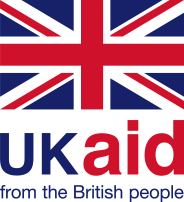Sustained, visible advocacy for gender and social inclusion (GESI) from the leadership, which is also communicated and reinforced regularly at all levels, especially by the human resource management team and floor-level managers, is critical.
Tips to Introduce and Institutionalise Gender Inclusion at Nepali Companies
Based on conversation with Kriti Giri, Project Coordinator, NYMA
1. Sustained, visible advocacy for gender and social inclusion (GESI) from the leadership, which is also communicated and reinforced regularly at all levels, especially by the human resource management team and floor-level managers, is critical. Having industry leaders like Pawan Golyan, the Chairperson of Reliance and NYMA, champion the importance of GESI, has greatly helped drive up acceptance and pace of NYMA’s GESI efforts.
2. Consider GESI assessment, to improve understanding of current state-of-play re: factors that can lead to increased and improved recruitment and retention of women. These questions can be useful starting points: a) What are the needs and interests of women workers?; b) What’s stopping more women from productive work opportunities; and c) What are examples of GESI-oriented best practices and policies adopted by other companies? After seeing Triveni’s success with recruitment of women, Jaya Spinning, for instance, organically began putting in place mechanisms for inclusive recruitment. Similarly, given Reliance Spinning Mill’s long-standing leadership on GESI, other firms like Jagadamba have learned and are picking up several best practices.
3. Show and etch GESI in the company's recruitment strategy and plan itself—to turn commitments into action. Without a deliberate approach and plan to “open the door wider” for women, inclusion will remain a “token effort”. Recruitment plans should look at where and how best to target, find, attract, and onboard women. NYMA members like Jagadamba Spinning Mill, for instance, reached out to local networks and groups such as NGOs, government’s Employment Service Centres (ESC), women’s groups, and community forest users’ groups. Such local organisations have direct access to women and can serve as trainee mobilisation partners if they understand “what’s in it for them?”.
4. As part of the recruitment plan, ensure that enrollment of women is not restricted to entry-level jobs, but also mid and senior-level jobs. Once more people, women and men alike, see more women – successfully recruited and performing well at different roles, including supervisors and trainers – this creates a ripple effect. Seeing is believing!
5. Take a multi-tiered approach to GESI to build need-based holistic service provisions for women. For example, Jagadamba has built separate washrooms, changing facilities, accommodation provision, and introduced transportation services along various routes since December 2020.
6. GESI and safeguarding against sexual exploitation, abuse, and harassment should go hand-in-hand. Given the safeguarding challenges at four factories, NYMA rolled out a safeguarding guideline in November 2020 to ensure that women and other workers from historically disadvantaged communities are safeguarded and empowered.


